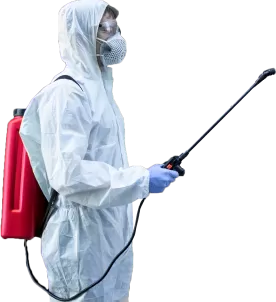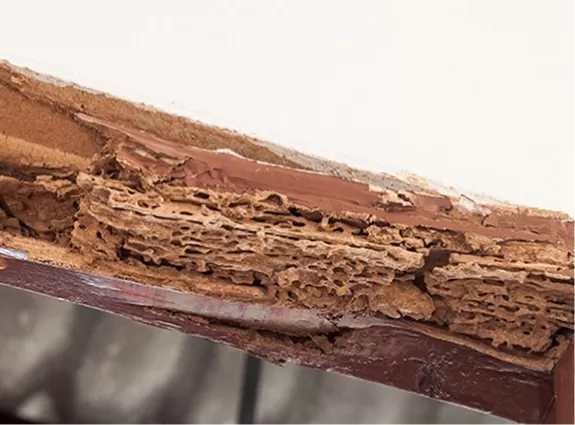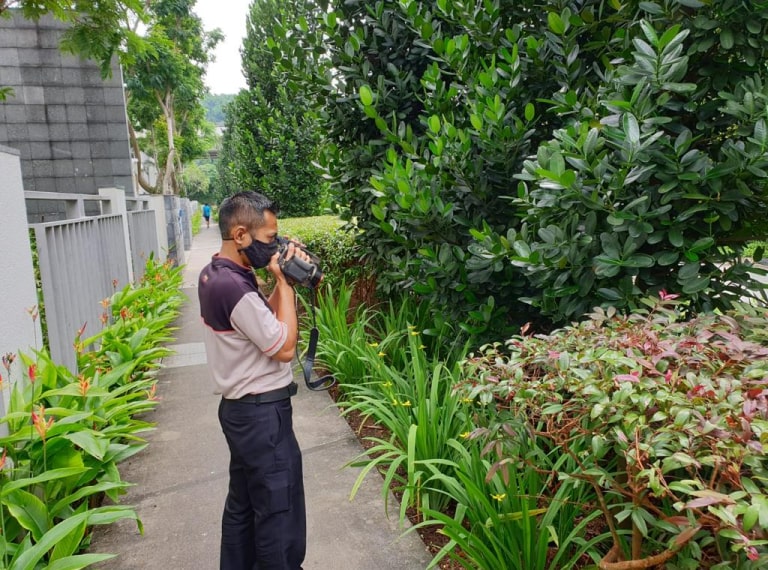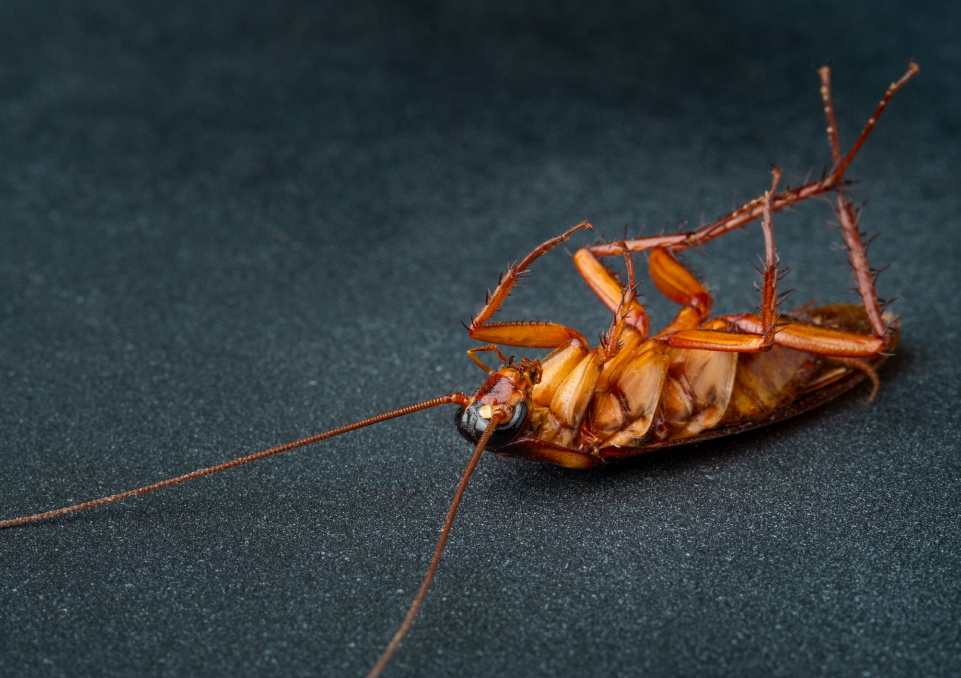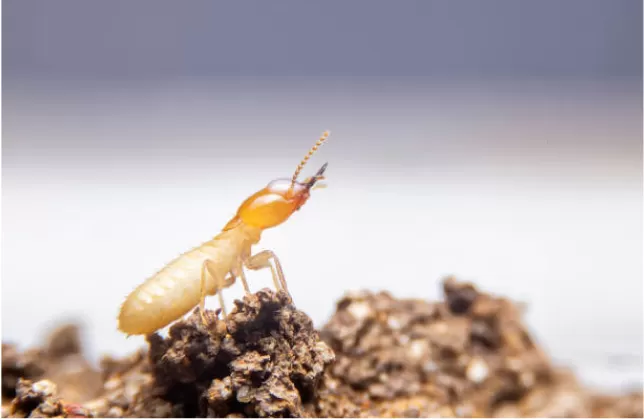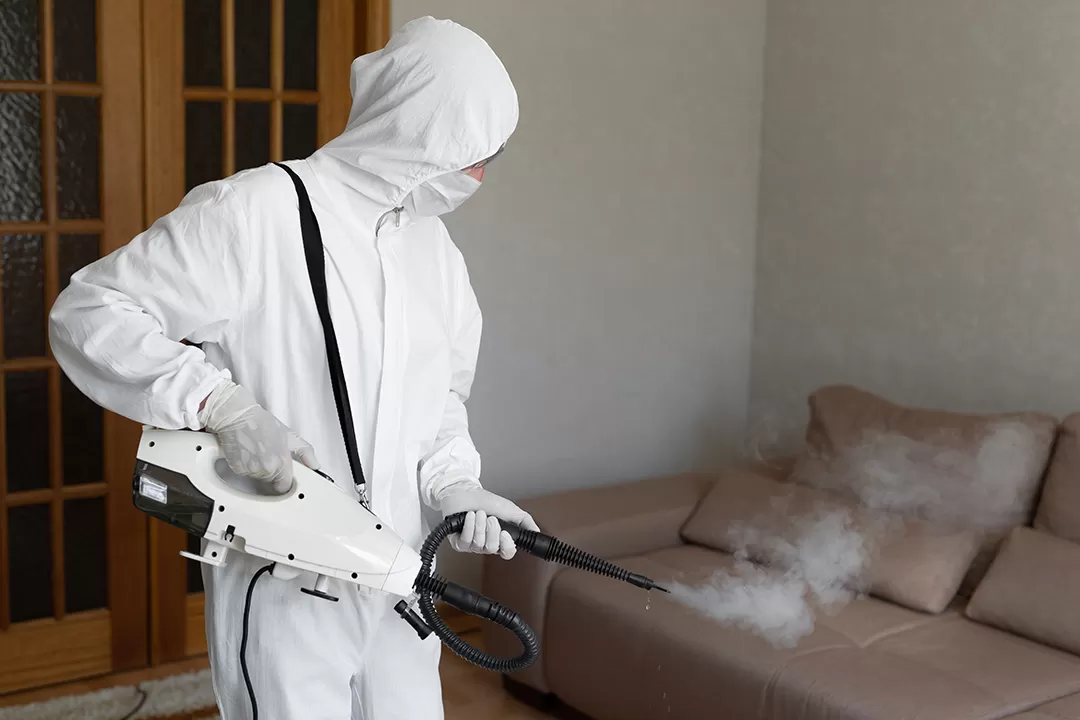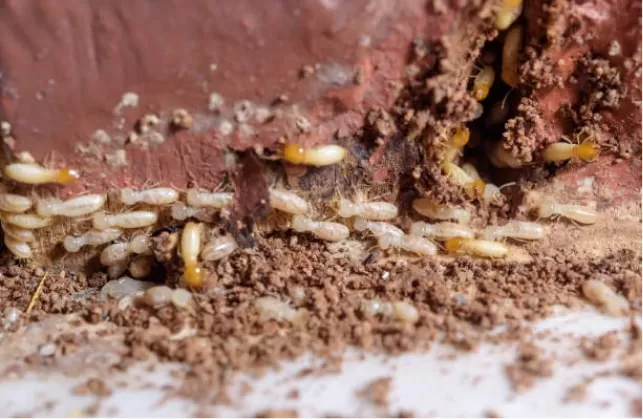In a world that is becoming increasingly conscious of environmental sustainability, eco pest control methods are emerging as effective solutions for managing pest issues, offering comprehensive pest control services tailored to your needs. This article delves into the many benefits of eco-friendly pest control, showcasing various methods that range from natural repellents to biological controls. Learn how Aardwolf Pestkare is at the forefront of employing these green techniques, ensuring that your home stays pest-free while also protecting the health of our planet through friendly pest control solutions. Let us explore the journey toward safer and more sustainable pest management together.
Key Takeaways:
- Eco pest control is a safe and sustainable approach to getting rid of pests.
- Benefits of using eco pest control methods include protecting the environment, human health, and preserving beneficial insects.
- Effective eco pest control methods include natural repellents, physical barriers, biological controls, and using eco-friendly chemicals, which are non-toxic pest control solutions designed to protect your home and the environment.
Introduction to Eco Pest Control
Eco pest control represents a sustainable approach that emphasizes the management of pest populations while minimizing environmental harm. In Singapore, the pest control industry has seen substantial growth, leading to an increasing popularity of eco-friendly methods among homeowners and businesses.
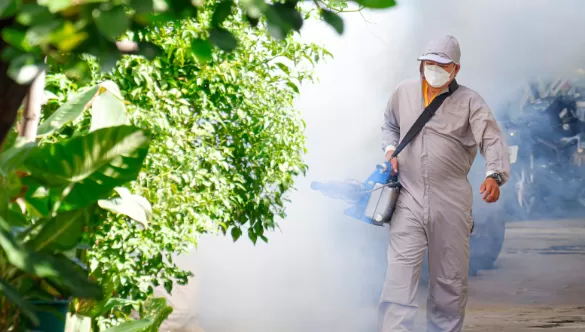
Given the rise in pest issues, such as termites, mosquitoes, and rodents, it is crucial to adopt pest management solutions that prioritize both safety and effectiveness. By understanding the various eco-friendly pest control methods available, property owners can make informed decisions when selecting the best pest control company to meet their needs in a responsible and efficient manner.
Benefits of Using Eco Pest Control Methods
Adopting eco-friendly pest control methods offers numerous advantages, not just for homeowners but also for the environment as a whole. These methods effectively manage pest infestations without relying on harsh chemicals that could potentially harm health and the ecosystem.
By prioritizing environmentally safe products and practices, pest control services can create a safer home and community while promoting sustainable living in Singapore. Additionally, eco-friendly pest control solutions often prove to be more effective for long-term pest management, decreasing the chances of future infestations.
Common Eco Pest Control Methods
Homeowners and businesses can implement several common eco pest control methods to effectively manage pest issues while supporting environmental sustainability. One effective approach is integrated pest management (IPM), which combines various strategies to control pests. This method emphasizes prevention and monitoring rather than solely relying on chemical solutions.
Techniques within IPM include biological controls, natural repellents, and physical barriers designed to reduce pest populations while ensuring a pest-free environment. In Singapore, where pests such as termites, cockroaches, and rodents are prevalent, understanding and applying these eco-friendly methods is essential for successful pest management.
Natural Repellents and Deterrents
Natural repellents and deterrents offer effective eco-friendly solutions for managing pest infestations without the need for harsh chemicals. These products typically use plant-derived ingredients, such as essential oils, to create barriers that pests find unappealing. For example, peppermint oil is often utilized to repel rodents, while citronella is well-known for keeping mosquitoes at bay. This makes them excellent choices for both residential and commercial pest control in Singapore. By adopting these organic pest control methods, property owners can maintain a pest-free environment while ensuring both their safety and the well-being of the ecosystem.
Utilizing natural repellents not only addresses pest problems but also supports a sustainable approach to pest management. For instance, herbs like rosemary and thyme can effectively deter unwanted insects, making them valuable additions to garden settings.
- Peppermint Oil: This is effective against ants and spiders and can be sprayed around entry points to keep these pests at bay.
- Citrus Peels: These serve as a natural deterrent for ants, mosquitoes, and even flies when placed strategically around the home.
- Vinegar: This potent solution works well for warding off fruit flies; a simple mixture can be left out to trap these pests.
By incorporating these natural ingredients, individuals can contribute to a healthier environment while effectively addressing their pest challenges.
Physical Barriers and Traps
Physical barriers and traps play a vital role in eco-friendly pest control strategies, offering non-toxic solutions for managing pest populations. Barriers such as mesh screens and caulking effectively prevent pests like cockroaches and ants from entering both residential and commercial properties.
These methods not only address pest issues at their source but also contribute to a healthier living environment. Physical barriers, such as fences and netting, create strong defenses against larger pests, while sticky traps provide a straightforward yet effective approach to monitoring and controlling insect populations without resorting to harmful chemicals.
- Mesh Screens: These are effective against flying insects, preventing them from infiltrating indoor spaces.
- Rodent Traps: These capture mice and rats without the need for toxic bait.
- Natural Deterrents: Barriers made from organic materials can sustainably repel pests.
By incorporating these eco-friendly solutions, property owners not only prioritize their health but also show a commitment to environmental stewardship.
Biological Control Methods
Biological control methods utilize natural predators or parasites to effectively manage pest infestations, presenting a highly efficient and environmentally friendly solution within the realm of eco pest control. By introducing beneficial organisms, such as ladybugs to combat aphids or nematodes to target soil-borne pests, property owners can cultivate a balanced ecosystem that mitigates pest issues without causing harm to the environment.
This approach aligns well with integrated pest management practices, emphasizing long-term solutions over reactive measures. In Singapore, understanding and implementing biological control methods can play a significant role in achieving sustainable pest management.
These strategies not only reduce dependence on chemical pesticides but also promote sustainability in pest management efforts. By leveraging the natural behaviors of specific organisms, practitioners can develop an effective pest management plan that is both efficient and safe for the surrounding community.
For example, introducing predatory insects or beneficial microbes can help regulate populations of common pests while encouraging biodiversity.
Consider the following examples:
- Predatory mites can effectively target spider mites, naturally reducing damage to crops.
- Pheromone traps can attract and capture harmful insect species, thus preventing their reproduction.
- Pathogenic fungi can be employed against caterpillars and beetles, effectively managing outbreaks.
These methods illustrate the versatility of biological control and underscore its importance in fostering healthier environments.
Eco-Friendly Chemicals
Eco-friendly chemicals represent a safe and effective alternative to traditional pesticides, successfully managing pest populations while minimizing environmental impact. These non-toxic solutions, derived from natural ingredients, are well-suited for both residential and commercial pest management services.
By encouraging pest control companies in Singapore to prioritize environmentally safe products, property owners can not only protect their homes from infestations but also support sustainable practices. Using eco-friendly chemicals not only addresses current pest issues but also disrupts pest life cycles, preventing future infestations.
Choosing eco-friendly chemicals offers numerous benefits for health and the ecosystem alike. For instance, products containing essential oils like peppermint and clove not only repel pests but also leave a delightful fragrance in your home. Unlike conventional pesticides, these natural solutions do not contribute to water contamination or leave harmful residues. The advantages of using these methods include:
- Enhancing indoor air quality by reducing volatile organic compounds (VOCs)
- Protecting non-target species, such as beneficial insects and pets
- Contributing to long-term soil health
In Singapore, the popularity of companies that utilize eco-friendly alternatives is on the rise. Options such as diatomaceous earth and neem oil provide effective pest control without compromising safety. Therefore, opting for eco-friendly chemicals not only fosters a healthier living environment for families but also promotes a more sustainable approach to pest management.
Importance of Professional Eco Pest Control Services in Singapore
Engaging professional eco-friendly pest control services is essential for effectively managing pest issues while ensuring the safety of both occupants and the environment, as recommended by the National Environment Agency (NEA)
By hiring specialists in this field, individuals and businesses can take advantage of comprehensive strategies tailored to their specific pest problems. These experts assess the unique challenges posed by pests to provide pest control services in Singapore and utilize environmentally friendly products and methods. Understanding pest behavior and biology allows them to identify the root causes of infestations. They also implement sustainable practices that minimize harm to beneficial insects and the ecosystem. Additionally, their up-to-date training equips them to use innovative solutions that prioritize health and safety.
In a diverse environment like Singapore, relying on a credible pest control services provider can significantly enhance overall well-being and hygiene standards in homes and workplaces, contributing to effective residential pest control and ultimately leading to long-term peace of mind.
How Aardwolf Pestkare Utilizes Eco-Friendly Pest Control Methods
Aardwolf Pestkare distinguishes itself as a leading pest control company in Singapore, employing innovative eco-friendly pest control methods to provide pest control solutions in Singapore and effectively address a range of pest infestations, providing pest control solutions that are designed to solve your pest problems. By integrating environmentally safe products with advanced pest management practices, Aardwolf ensures that clients receive tailored, high-quality pest control services in Singapore that meet their specific needs.
Their team of expert technicians is trained in the latest eco-friendly solutions, allowing them to effectively manage common pests such as termites, cockroaches, and rodents, all while prioritizing safety and sustainability. This dedication to eco-friendly practices positions Aardwolf as a prominent leader in the pest control industry, setting them apart as a premier pest control company in Singapore.
Recognizing the challenges posed by unwanted pests, Aardwolf Pestkare utilizes a variety of strategies that are not only effective but also considerate of the environment. They employ methods such as:
- Integrated Pest Management (IPM), which emphasizes prevention
- Natural repellents derived from plants that deter pests without causing harm, aligning with green pest control solutions
- Non-toxic baits and traps specifically designed for targeted pest issues
This thoughtful approach ensures that treatments are effective yet safe for both pets and children, aligning seamlessly with a sustainable lifestyle and local pest control practices. Clients can feel assured that Aardwolf Pestkare addresses their pest challenges with solutions that respect both their home environment and the planet.
Conclusion: Taking a Sustainable Approach to Pest Control Services in Singapore
Adopting a sustainable approach to pest control is vital for both property owners and the environment. By prioritizing eco-friendly pest management solutions, individuals can effectively tackle pest issues with safe pest control solutions while reducing their ecological footprint. As the pest control practices in Singapore continues to develop, integrating environmentally safe products and practices will be crucial in preventing future infestations and safeguarding our communities. By opting for eco-friendly pest control methods, homeowners and businesses can contribute to a healthier and more sustainable environment.
This commitment not only supports the preservation of biodiversity but also fosters a safer living and working environment.
- One significant advantage of such practices is the reduction of harmful chemicals, which can negatively impact human health and local ecosystems.
- Utilizing natural pest control strategies and disinfection services can enhance properties’ resilience against pests while promoting sustainable practices that benefit the community.
- Ultimately, transitioning to eco-friendly pest control enables individuals to take responsibility and lead by example, demonstrating their dedication to environmental stewardship.
When everyone makes conscious choices, it creates a ripple effect that encourages a more harmonious coexistence with nature.
What Are the Most Common Pests That Can Be Controlled with Eco Pest Control Methods?
Eco pest control methods offer effective management of various common pests found in Singapore, helping to maintain a pest-free environment while adhering to sustainable practices. Among the most frequently encountered pests are termites, which present significant threats to residential properties. Cockroaches and mosquitoes also pose concerns for health and comfort. Additionally, ants and rodents frequently infiltrate homes and businesses in their quest for food and shelter. By utilizing eco-friendly pest control solutions, property owners can address these infestations without resorting to harmful chemicals.
To gain a clearer understanding of how eco pest control can protect properties from unwanted invaders, it is helpful to examine some of the most common pests and the corresponding methods to manage them:
- Termites: These wood-destroying insects can inflict serious structural damage. Utilizing biological control methods, such as nematodes, along with monitoring and bait systems, can effectively manage termite populations without the need for chemicals.
- Cockroaches: Known for their resilience, these pests can be deterred using natural repellents, such as essential oils derived from peppermint or tea tree oil, in conjunction with proper sanitation measures.
- Mosquitoes: Given their potential to transmit diseases, it is crucial to address them through methods like releasing natural predators, including fish that feed on larvae, thereby reducing their breeding areas.
- Ants: Home remedies, such as diatomaceous earth or vinegar-based solutions, can effectively disrupt their scent trails and deter their presence.
- Rodents: Implementing traps, along with sealing food and maintaining a clean environment, can significantly reduce rodent attraction without the use of harmful poisons.
By considering these eco-friendly pest control approaches, homeowners can effectively maintain a safe and healthy living space while balancing environmental integrity with their pest management needs.
How Can One Identify If They Have a Pest Infestation?
Identifying a pest infestation early is vital for effective pest management, as taking prompt action can prevent further damage and ensure a pest-free environment. Homeowners should be on the lookout for common signs of pests, which may include droppings, unusual sounds, and visible damage to property. These indicators often suggest the presence of pests such as termites or rodents. Additionally, unexplained bites or rashes could point to a bed bug infestation. Recognizing these signs early on can assist in determining the appropriate pest control solutions to implement.
It is essential for homeowners to remain vigilant, as many pests can multiply rapidly if not addressed. The presence of strong odors, particularly in areas such as kitchens or storage spaces, may signal infestations of rodents or cockroaches. Regular inspections of the property, especially in damp areas, can help identify moisture that attracts termites.
Here are some signs to be mindful of:
- Droppings: Small black specks can indicate the presence of rodents.
- Gnaw marks: Look for abrasions on wood or plastic surfaces.
- Webbing: Spider webs can indicate an infestation of spiders or insects.
- Damage to food: Chewed packages might suggest that pests are feasting on supplies.
By being proactive and identifying these symptoms early, homeowners can effectively mitigate potential infestations before they escalate, ultimately avoiding more costly interventions with traditional pest control methods.
What Are the Risks of Using Chemical Pest Control Methods?
Utilizing chemical pest control methods carries several risks to both human health and the environment, which is why eco-friendly pest control has become a preferred alternative. While chemical pesticides may provide immediate results, they can lead to adverse side effects, such as respiratory issues, skin irritations, and long-term health complications for those exposed. Additionally, these chemicals can contaminate the environment, negatively impacting non-target organisms and disrupting local ecosystems. Recognizing these risks highlights the importance of seeking safer, eco-friendly pest control solutions that effectively manage pests without compromising safety.
The reliance on these harmful substances raises significant concerns. Research indicates that prolonged exposure to pesticides can result in chronic conditions, including certain cancers and neurological disorders. Moreover, runoff from treated areas can pollute waterways, posing threats to aquatic life and drinking water supplies. This type of pollution can trigger cascading effects on biodiversity, diminishing the resilience of local ecosystems.
To illustrate these concerns, consider the following points:
- Human Health Risks: Long-term exposure may lead to severe health issues.
- Environmental Impact: Disruption of vibrancy in local wildlife and habitats.
- Water Contamination: Toxins entering ecosystems can adversely affect both animals and plants.
In contrast, eco-friendly alternatives, such as integrated pest management, eco friendly pest control methods and natural repellents, provide sustainable solutions that prioritize safety while effectively managing pest populations. These methods are not only safer for humans and pets but also enhance the health of the ecosystem, fostering a balanced approach to pest control singapore.
How Can One Maintain the Effects of Eco Pest Control in the Long Run?
Maintaining the effectiveness of eco pest control over the long term requires a proactive approach to both prevention and ongoing pest management. Property owners should conduct regular inspections of their premises to look for signs of pests and implement preventive measures, such as sealing entry points, managing waste, and maintaining cleanliness through inspection of your property. Incorporating eco-friendly solutions into routine maintenance can significantly enhance pest control efforts, ensuring that the property remains pest-free and sustainable with pest prevention. By prioritizing these practices, homeowners can effectively reduce the likelihood of future infestations.
Adopting a holistic mindset towards eco pest control can lead to substantial benefits. This involves understanding the local ecosystem and recognizing how various factors contribute to pest attraction. For instance, homeowners should:
- Conduct routine assessments of landscaping to minimize pest habitats.
- Encourage natural predators, such as birds and beneficial insects, by creating inviting spaces within gardens.
- Utilize organic repellents and traps that conform to environmental standards.
By integrating these strategies into their maintenance routines, property owners can foster a healthier environment, ultimately resulting in a sustainable and pest-resistant home through environmental management. Additionally, engaging the community in educating others about the importance of eco-friendly practices can amplify these efforts by involving businesses in singapore, creating a ripple effect that benefits everyone involved.
What Are Some DIY Eco Pest Control Methods That Can Be Used at Home?
DIY eco pest control methods provide homeowners with effective and eco friendly pest solutions for managing pest issues without the need for commercial pesticides.
By adopting these methods, households can easily regain control over their living spaces while greatly reducing their reliance on harmful chemicals. Additionally, these techniques fit seamlessly into the growing trend of homemade cleaning and maintenance practices, allowing individuals to utilize common household items such as vinegar, baking soda, and essential oils for various applications.
For example, vinegar can be an effective repellent against ants when sprayed around entry points, while a mixture of baking soda and sugar serves as a potent trap for cockroaches. Essential oils like peppermint and tea tree oil can also be combined with water to create a natural barrier that deters insects without unpleasant odors, offering control solutions are designed for all
These methods not only save money but also contribute to a safer living environment, making them ideal for those seeking sustainable pest management solutions and to get rid of pests. Implementing eco-friendly pest control can be straightforward, cost-effective, and advantageous for both personal health and the environment.
What Are Some Common Misconceptions About Eco Pest Control?
Despite the increasing popularity of eco pest control, several misconceptions continue to circulate regarding its effectiveness and practicality. One prevalent belief is that eco-friendly pest control methods are less effective than their chemical counterparts. This is a misconception; in fact, many natural remedies and integrated pest management strategies can yield equally strong results when applied correctly. Some individuals assume that eco pest control is more expensive, but it often leads to long-term savings by preventing future infestations. Understanding these misconceptions is vital for making informed decisions about target pests management.
Many people think that choosing eco pest control means sacrificing immediate results, but studies indicate that numerous organic solutions can actually produce quicker outcomes than synthetic chemicals. For example, essential oils like peppermint and eucalyptus have demonstrated effective pest deterrent properties. Additionally, methods such as introducing beneficial insects, like ladybugs, can naturally reduce harmful pest populations.
Another myth suggests that eco pest control lacks versatility, but there are numerous options available to address various pest situations with experts in pest control, ranging from baiting to exclusion tactics. By embracing these practices, individuals can create a healthier living environment while protecting local wildlife and plant life, demonstrating that eco pest control is not only viable but also a smart choice for sustainable living with control and prevent strategies.
Frequently Asked Questions
What is eco pest control and how does it help with pest management?
Eco pest control is a method of managing and eliminating pests using professional pest control and environmentally friendly and non-toxic techniques. It focuses on finding long-term solutions rather than using harmful chemicals, making it safer for both humans and the environment.
What are some common eco pest control methods for getting rid of pests?
Some examples of eco pest control methods include using natural substances such as essential oils and diatomaceous earth for cockroach control, implementing physical barriers like nets and traps, and introducing natural predators to the pest population.
How does Aardwolf Pestkare use eco pest control to safely eliminate pests?
At Aardwolf Pestkare, we use a combination of eco-friendly techniques and professional expertise to effectively eliminate pests. These methods, part of our control service in singapore, are not only environmentally conscious, but also safe for our clients and their families.
Are eco pest control methods effective in completely getting rid of pests?
Yes, when done properly and consistently, eco pest control methods can effectively eliminate pests from your home or business. Our team at Aardwolf Pestkare is trained and equipped to provide thorough and long-lasting solutions for pest management.
What are the benefits of choosing eco pest control over traditional methods?
Eco pest control methods not only prioritize the health and safety of individuals and the environment, but they also have long-term benefits. Unlike traditional methods, which may only offer temporary relief, eco pest control focuses on finding sustainable solutions for long-lasting pest management.
Can I still use eco pest control methods for severe pest infestations?
Yes, even for severe pest infestations, eco pest control methods can be just as effective as traditional methods, ensuring services ensure thoroughness. However, it may require more time and consistent efforts to completely eradicate the pests. Aardwolf Pestkare offers customized solutions for different levels of pest control needs.

